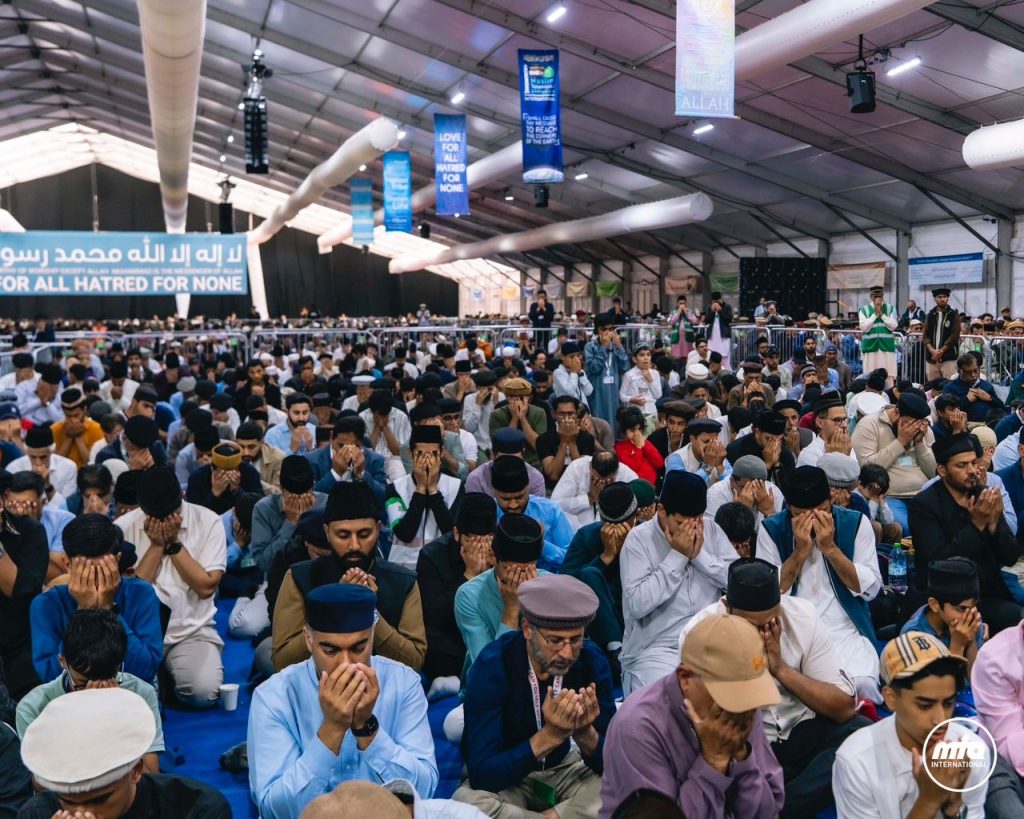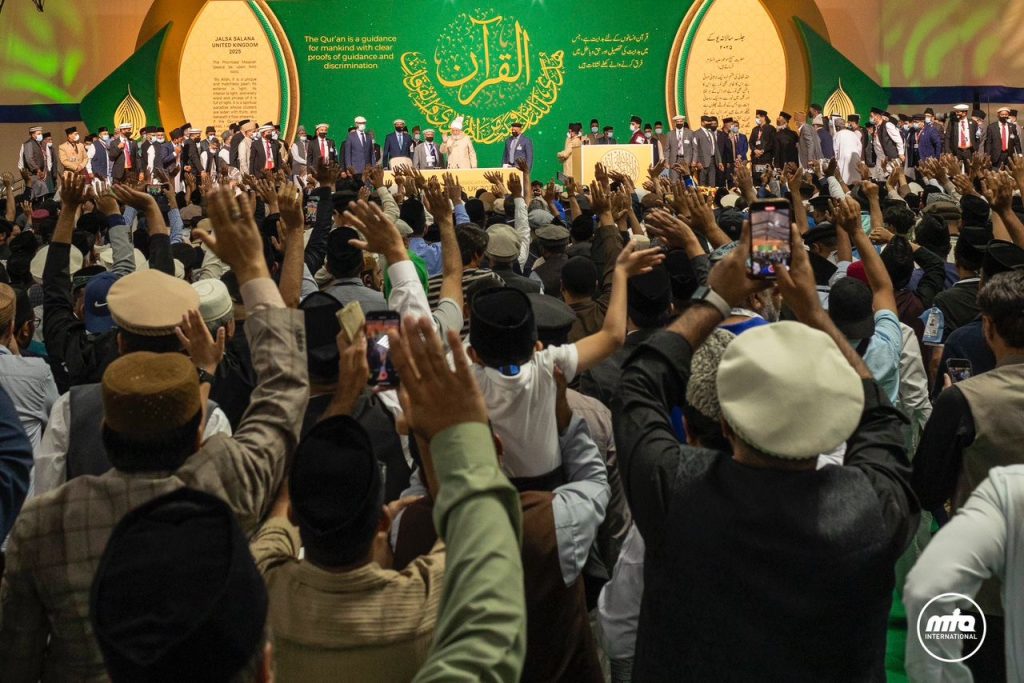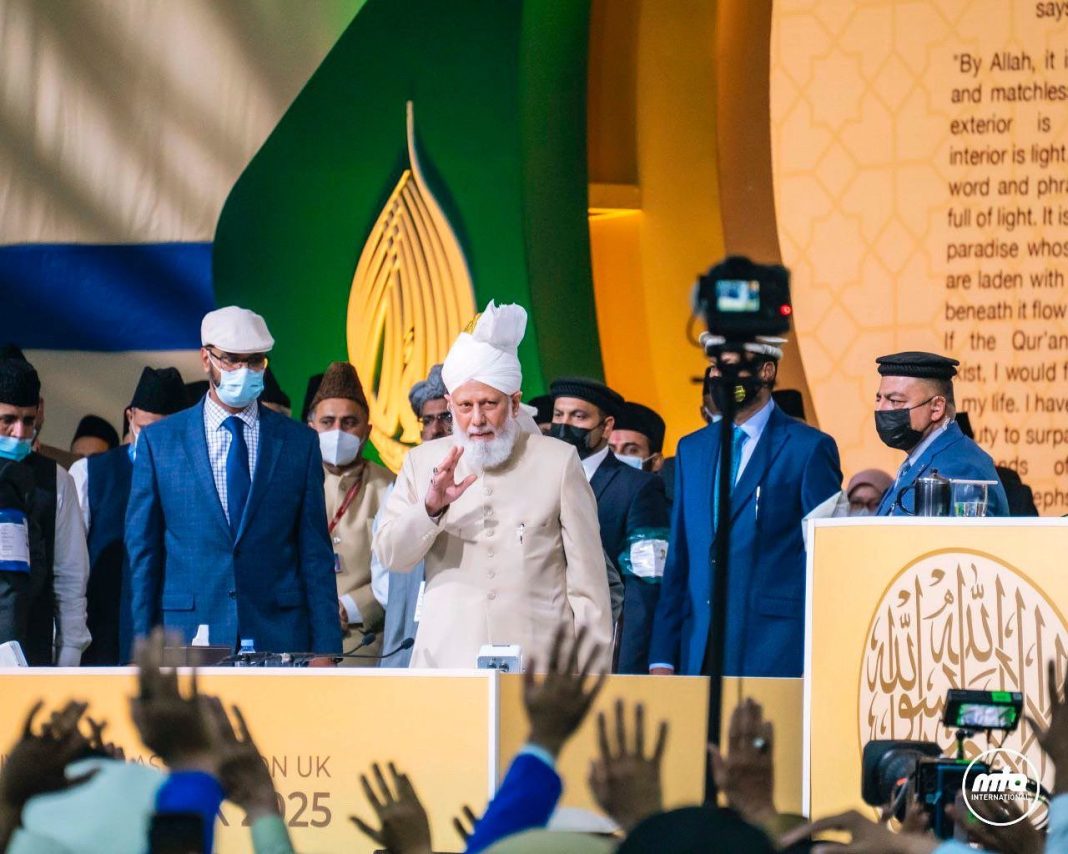By Samuel Ssenono
The global head of the Ahmadiyya Muslim Community delivered a strong message on justice, dignity, and the true spirit of Islam when it comes to the treatment of women.
Speaking at the women’s session of the 59th Annual Islamic Convention in the United Kingdom, Hazrat Mirza Masroor Ahmad, Khalifatul Masih V, called for an end to the misuse of religious teachings, especially on polygamy, to justify abuse or inequality. He described women as valuable and honoured members of society who deserve respect, kindness, and fair treatment.

He addressed the issue of polygamy directly, reminding the thousands in attendance that while the practice is permitted in Islam, it comes with strict conditions. He cautioned that if a man cannot meet those conditions with justice and fairness, he should not take on more than one wife. The real aim of the teaching, he explained, is to reform and regulate what was once an unchecked cultural practice, not to promote inequality or harm.
Beyond polygamy, the spiritual leader also highlighted broader concerns about the moral direction of society today. He encouraged women to stand firm in their values and to be examples of righteousness, starting within their own homes. True Islamic conduct, he said, begins with how one treats their family, through patience, humility, and good character.

Importantly, he also acknowledged that mistreatment in relationships is not one-sided. While many women suffer injustice, there are also men who face difficulties. However, he emphasized that wrong actions on either side cannot be excused, and both men and women have a duty to act with wisdom and restraint.
The message also focused on compassion and the nature of marriage. The relationship between husband and wife, he said, should be rooted in mutual respect, affection, and sincere friendship. Islam does not condone harshness or emotional neglect in any form.
On the subject of modesty, the Khalifa reaffirmed the value of purdah, not as a restriction but as a form of spiritual discipline and self-respect. He encouraged men and women alike to observe modesty in appearance and behaviour, and to resist the pressures of a society driven by image and materialism.
He closed by urging Ahmadi Muslim women to take inspiration from the lives of noble women in Islamic history. These were women known for their courage, piety, and service. Their example, he said, remains deeply relevant in the modern world.
The address left a strong impression on those in attendance, particularly Ugandan delegates who were led by Maulana Muhammad Ali Kaire, Amir and Missionary-in-Charge of the Uganda Jamaat























